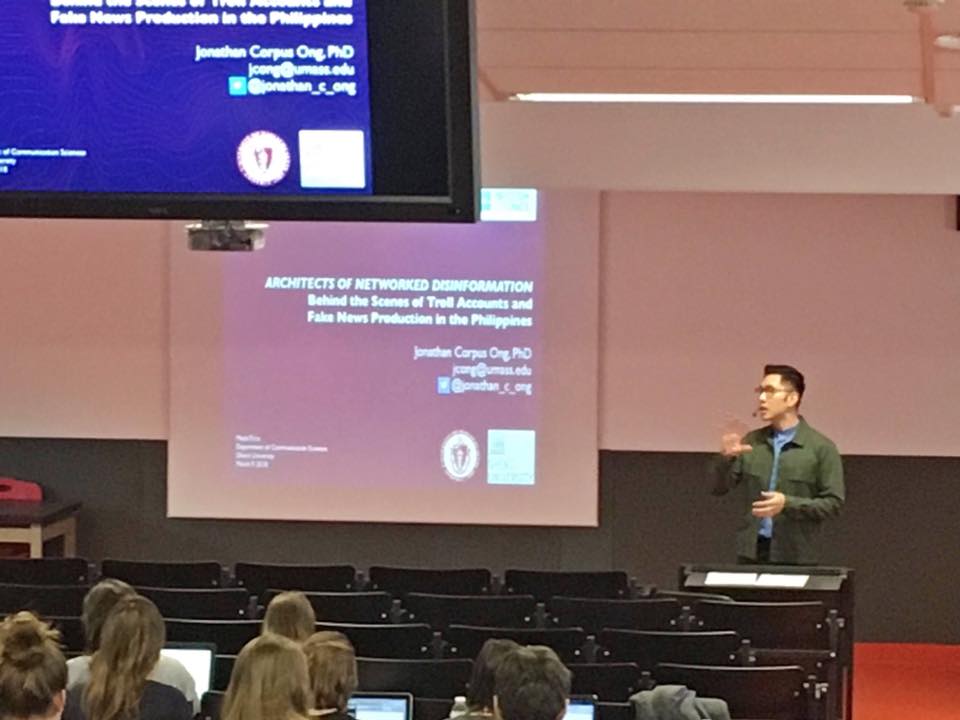The authors of the report “Architects of Networked Disinformation: Behind the Scenes of Fake News Production and Trolling in the Philippines” have been presenting the research in various academic institutions around the world. Join our discussions on the following events.
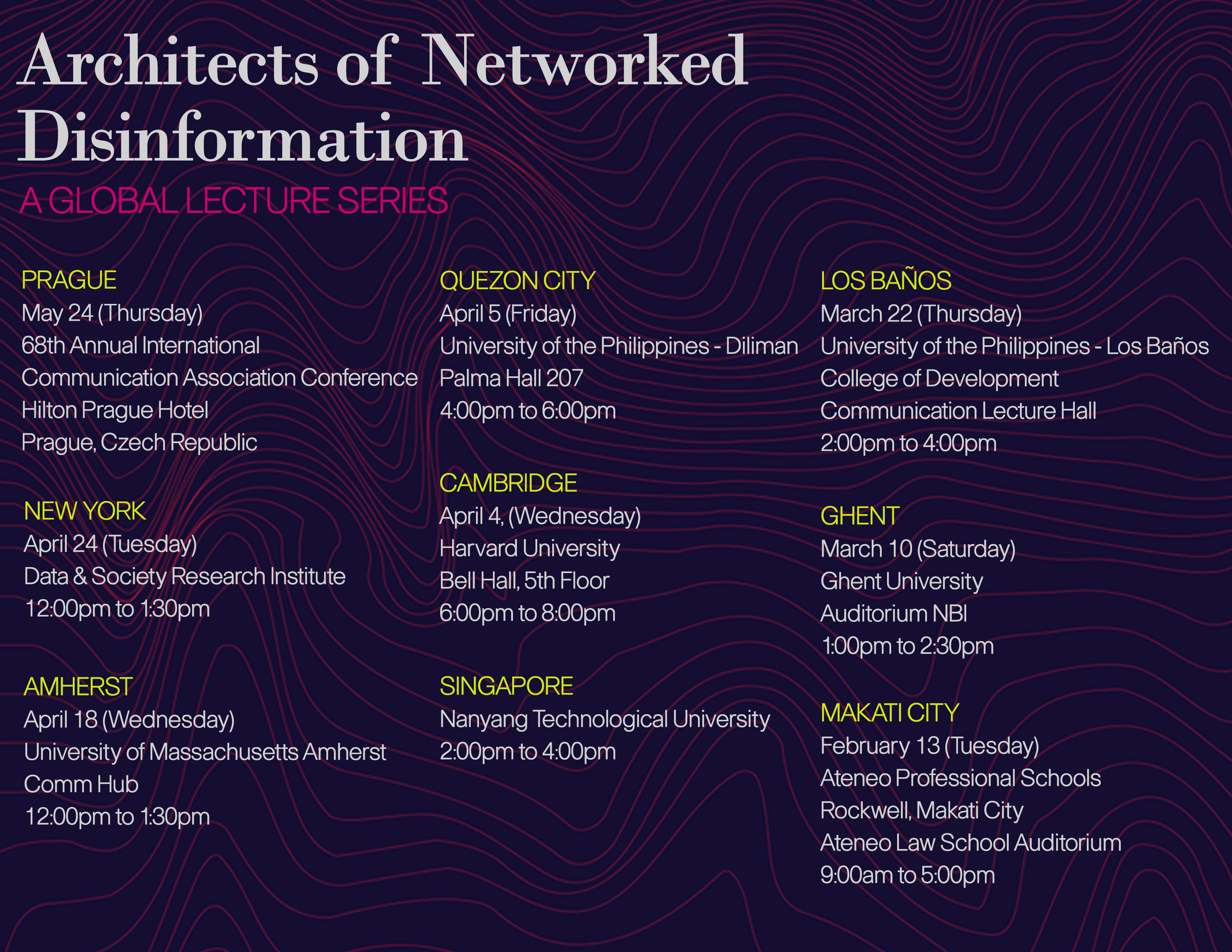
The Pan-Harvard Filipino Network, in collaboration with the Shorenstein Center, the Nieman Foundation, and the HKS Southeast Asia Caucus, hosted a forum-discussion in Harvard University last 4 April 2018. Dr. Jonathan Ong is joined in the panel by Rappler co-founder Glenda M. Gloria and former Associated Press reporter and 2007 Nieman Fellow Tini Tran.
The event was an opportunity for academics and journalists to think about the challenges faced by them amid the attacks from trolls as a mechanism to silent government critics, accountability of tech firms such as Facebook, transparency in how algorithms operate, and finally, the dangers of legislating regulation on freedom of speech.
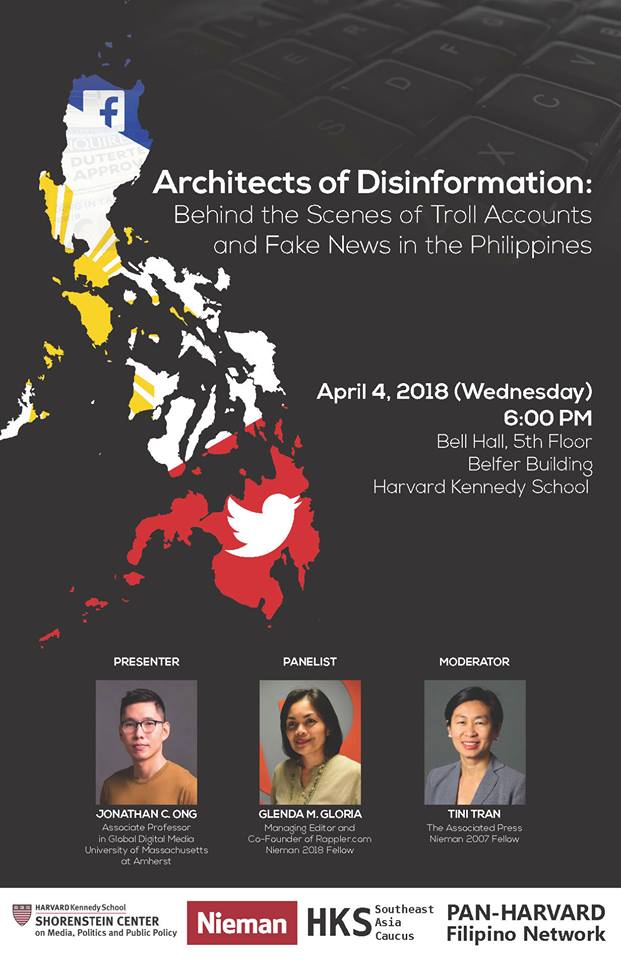
Meanwhile, the Fake News Research Team members of Nanyang Technological University, Singapore hosted a roundtable discussion with Dr. Jason Cabañes on 29 March 2018. Joined by Dr. Edson Tandoc Jr., Prof. Rich Ling, and ICA President Prof. Ang Peng Hwa, the event linked to the wider effort to understand disinformation in Asia and digital labor studies in the global South.
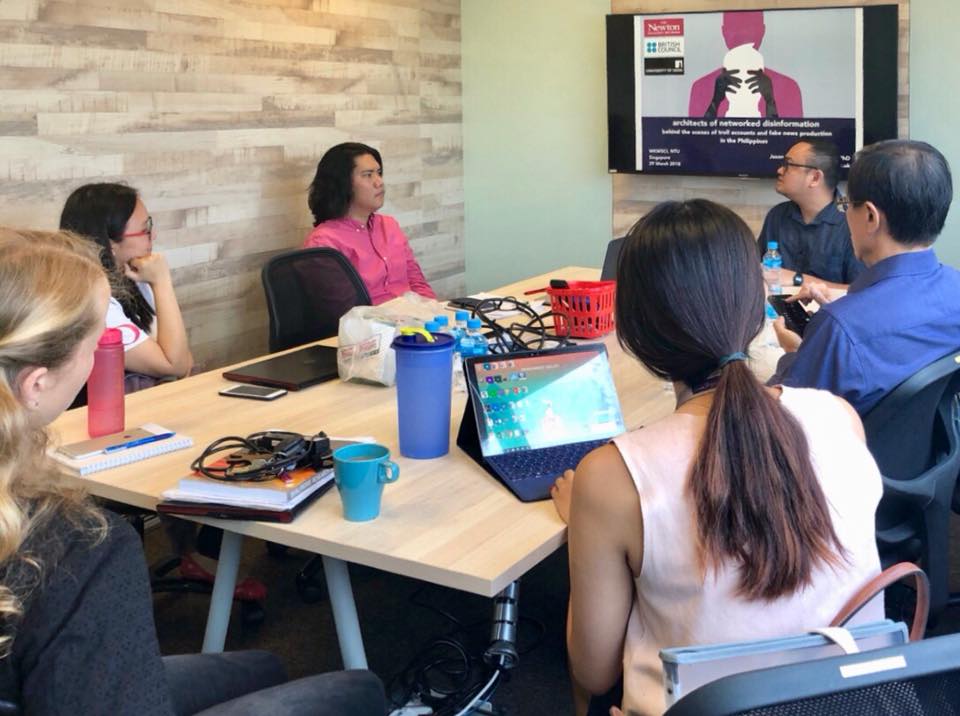
The students of the University of the Philippines Diliman and Los Baños have also spearheaded public talks on fake news and disinformation. The College of Development Communication together with the College of Arts and Sciences featured Dr. Jason Cabañes in an academic lecture last 22 March 2018. Students and faculty members from different colleges attended the event including the Dean Ma. Theresa Velasco, Dr. Edmund Centeno, Dr. Leonora Fajutana, and JM Embate from the College of Development Communication; Prof. Dwight David Diestro, Dr. Leonora Fajutaana, Yvan Yonaha, Dr. Florencia Gonaza-Palis from the College of Arts and Sciences.
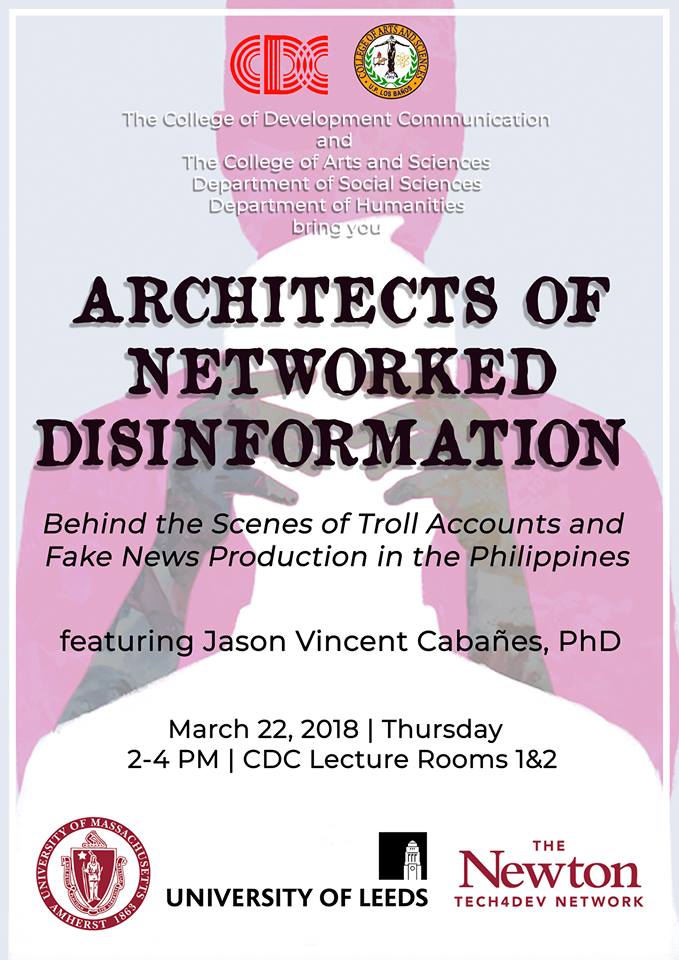
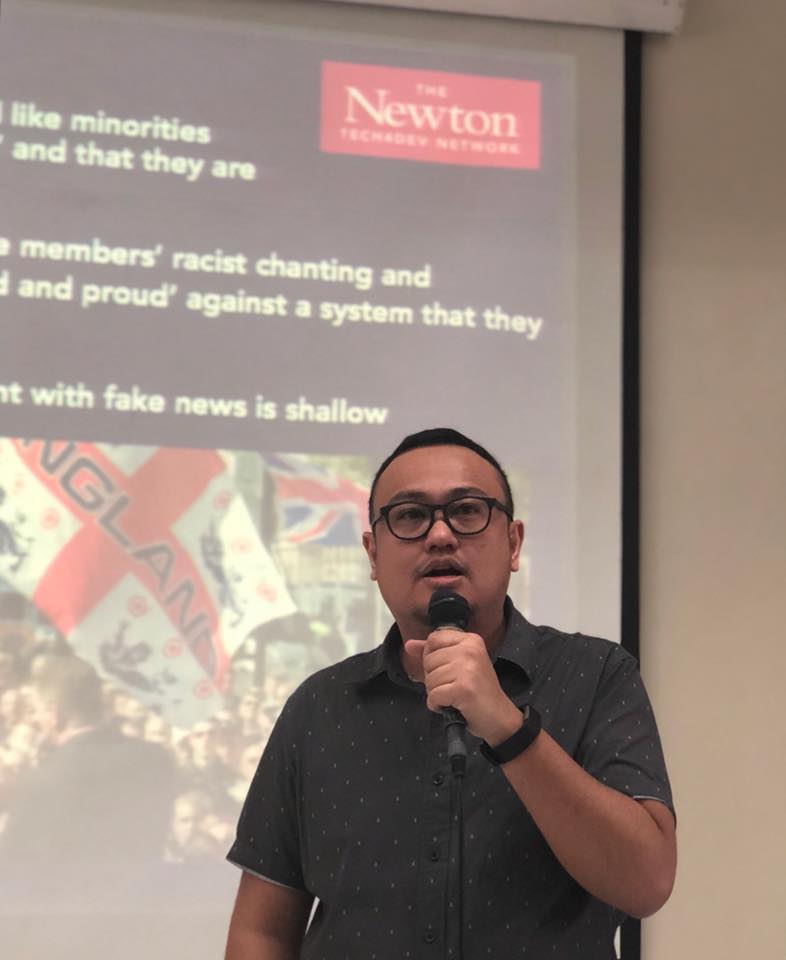
During the lecture, Dr Cabanes presented the findings and key insights of the study and urged the audience to see the media as resources of judgment which has a capacity to shape our understanding of the world.
And recently, the student councils of the College of Social Sciences and the College of Mass Communication hosted a talk entitled Mulat: A Humanistic Approach to the Philippine Culture of Disinformation. They invited speakers with background on social sciences and mass communication to share the unique perspectives that psychology, sociology, and journalism can offer in studying fake news and disinformation. Pamela Combinido represents the Newton Tech4Dev Network in the said event and presented the findings of the Architects of Networked Disinformation Report.
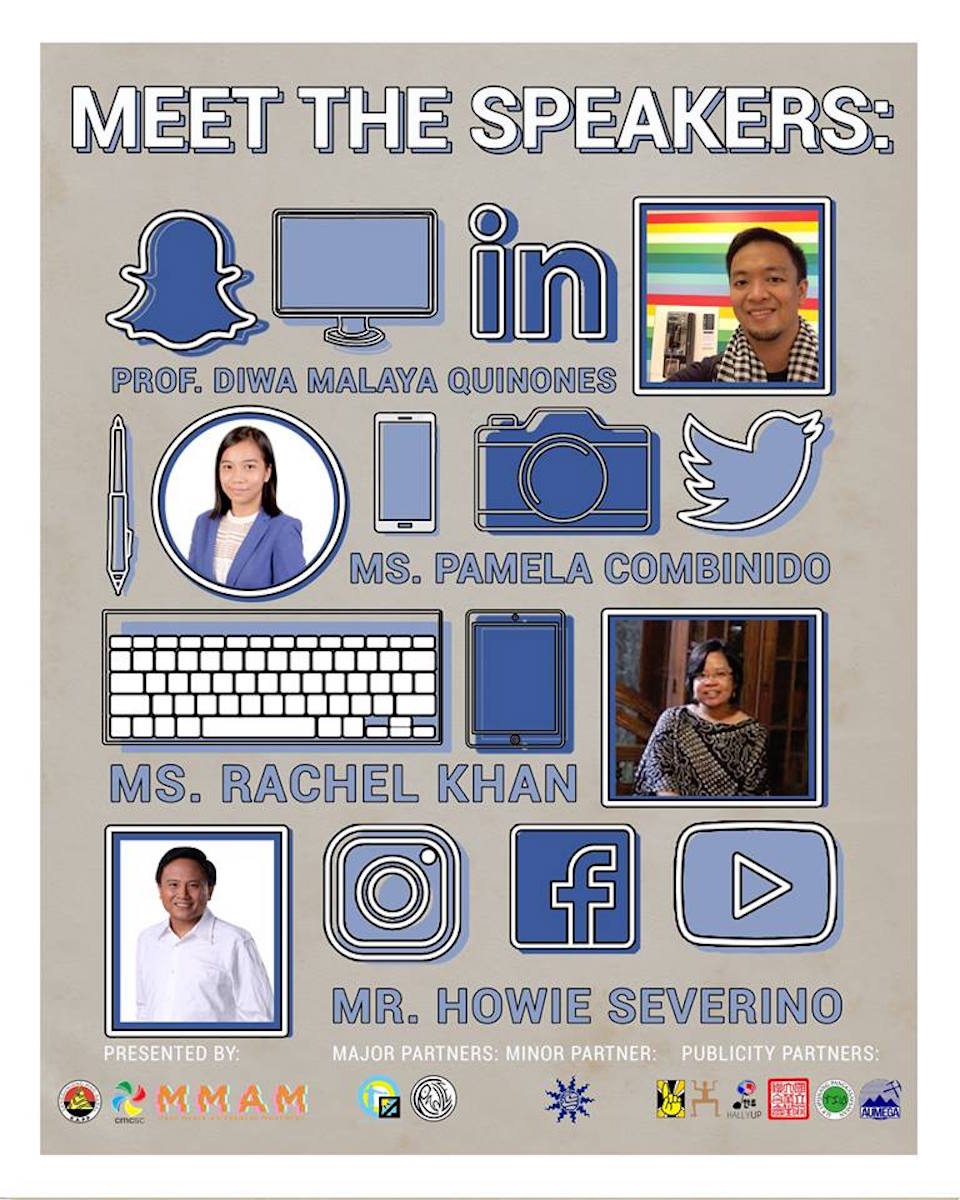
Dr Ong has also presented this report to a public seminar with the Department of Communication at Ghent University in Belgium last 10 March 2018. The event was organized by Dr Sander de Ridder and Dr Stijn de Joye.
